
Iraqi Journal of Hematology
Scope & Guideline
Unveiling Breakthroughs in Blood Disorders
Introduction
Aims and Scopes
- Clinical Research in Hematology:
The journal publishes clinical studies that assess treatment outcomes, diagnostic techniques, and patient management strategies for various hematological disorders, such as leukemia, thalassemia, and lymphoma. - Diagnostic Innovations:
There is a consistent focus on the evaluation and comparison of diagnostic methods, including novel techniques for blood tests and cross-matching, which contribute to improved patient outcomes. - Epidemiological Studies:
The journal frequently includes epidemiological research that examines the prevalence and risk factors associated with hematological diseases within specific populations, particularly in Iraq. - Therapeutic Interventions:
Research on the efficacy and safety of treatment regimens, including chemotherapy, stem cell transplantation, and novel therapies, is a core area of the journal's focus. - Patient-Centered Outcomes:
Studies that explore quality of life, patient experiences, and the psychosocial aspects of living with hematological conditions are also highlighted, reflecting a comprehensive approach to patient care.
Trending and Emerging
- Impact of COVID-19 on Hematological Patients:
There is an increasing focus on how COVID-19 affects patients with existing hematological conditions, including complications and treatment outcomes, which is crucial given the pandemic's widespread impact. - Personalized Medicine and Genetic Studies:
Emerging research on the genetic factors influencing treatment responses in hematological diseases underscores a growing interest in personalized medicine, aiming to tailor treatments based on individual genetic profiles. - Nutritional and Environmental Factors:
Recent studies evaluating the role of nutritional deficiencies, such as Vitamin D levels in thalassemia patients, highlight a trend towards understanding how environmental and lifestyle factors affect hematological health. - Innovative Therapeutics and Treatment Regimens:
There is a marked increase in studies assessing novel therapies and regimens for hematological diseases, reflecting ongoing advancements in treatment methodologies and patient management. - Quality of Life and Patient Experience Research:
An emerging theme is the assessment of quality of life and psychosocial factors among patients with hematological disorders, emphasizing the importance of holistic patient care.
Declining or Waning
- Basic Science Research:
There is a noticeable decrease in the number of publications focusing on the fundamental biological and molecular mechanisms underlying hematological diseases, suggesting a shift towards more clinically relevant studies. - Rare Hematological Disorders:
Research on rare hematological conditions appears to be declining, possibly due to a reduced number of cases and the challenges associated with studying these less common disorders. - Historical and Longitudinal Studies:
The journal has seen fewer studies that focus on historical perspectives or long-term outcomes of hematological treatments, indicating a preference for current and immediate clinical applications.
Similar Journals

INTERNATIONAL JOURNAL OF HEMATOLOGY
Fostering Global Insights in Blood ResearchThe INTERNATIONAL JOURNAL OF HEMATOLOGY, published by SPRINGER JAPAN KK, serves as a critical platform for advancing research in the field of hematology. With a prestigious history spanning over three decades from 1991 to 2024, this journal is recognized for its impactful contributions, evidenced by its Q2 category ranking in Hematology for 2023, and its notable position at rank #71 out of 137 in the Scopus Medicine Hematology category. Researchers and professionals within the hematology community benefit from the journal's rigorous peer-reviewed articles that cover a wide range of topics, including clinical studies, basic research, and novel therapeutic strategies. Though currently non-open access, it provides essential insights and findings to an audience passionate about the latest advancements in blood disorders and treatments. Situated in Japan, the journal not only showcases high-quality research but also fosters a global exchange of knowledge in hematology, making it a significant resource for scholars, practitioners, and students alike.
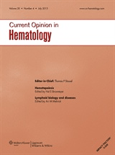
CURRENT OPINION IN HEMATOLOGY
Connecting groundbreaking research to clinical practice.CURRENT OPINION IN HEMATOLOGY is a leading peer-reviewed journal published by Lippincott Williams & Wilkins, focusing on the latest advancements and insights in the field of hematology. With an impressive impact factor and ranked in the first quartile (Q1) of its category, this journal serves as a vital resource for researchers, clinicians, and students seeking to stay informed on contemporary issues and emerging trends in hematological research and treatment. Established in 1994, it showcases critical reviews, expert commentary, and systematic analyses across a broad spectrum of hematology topics, contributing significantly to clinical and experimental knowledge through its robust editorial standards. While offering traditional subscription access, CURRENT OPINION IN HEMATOLOGY remains committed to providing a platform that bridges the gap between fundamental research and clinical application, making it indispensable for professionals dedicated to advancing patient care and scientific understanding in hematology.

Indian Journal of Hematology and Blood Transfusion
Exploring Innovations in Blood Disorders and Transfusion ScienceIndian Journal of Hematology and Blood Transfusion, published by SPRINGER INDIA, serves as a leading platform for disseminating original research, reviews, and case studies in the field of hematology. With an ISSN of 0971-4502 and E-ISSN 0974-0449, this journal has been instrumental in advancing knowledge from 2000 to 2024, providing insights into critical issues surrounding blood disorders and transfusion practices. Currently ranked in the Q3 category for Hematology for 2023, it reflects a commitment to high-quality scientific content amidst a competitive landscape where it ranks 97/137 in Scopus for Medicine - Hematology, placing it in the 29th percentile of its peers. The journal primarily addresses a diverse readership, including researchers, healthcare professionals, and students, aiming to foster innovation and collaboration within the field. Although it operates under a subscription model, access options for individual articles and institutional subscriptions ensure that valuable research is disseminated widely to enhance medical practice and education in hematology.
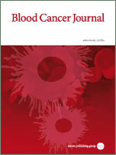
Blood Cancer Journal
Leading the charge in hematology and oncology.Blood Cancer Journal, published by SPRINGERNATURE, is a leading open-access journal that has been at the forefront of hematology and oncology research since its inception in 2011. With an impressive impact factor and a commitment to disseminating high-quality research, it holds a prestigious Q1 ranking in both hematology and oncology categories as of 2023. The journal is dedicated to publishing innovative studies, comprehensive reviews, and insightful commentaries that advance our understanding of blood cancers, making it an essential resource for researchers, healthcare professionals, and students in the field. Its open-access model ensures that groundbreaking research is accessible to a global audience, promoting collaborative efforts to enhance treatment methodologies and patient outcomes. With a strong reputation illustrated by its Scopus rankings—8th in hematology and 30th in oncology—Blood Cancer Journal exemplifies excellence and leadership in the ever-evolving landscape of cancer research.
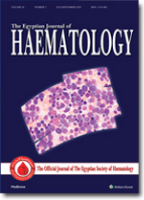
Egyptian Journal of Haematology
Unveiling Innovations in Hematologic ResearchThe Egyptian Journal of Haematology, published by WOLTERS KLUWER MEDKNOW PUBLICATIONS, stands as a pivotal resource in the field of hematology, particularly within the context of Egypt and the broader Middle Eastern region. This journal is dedicated to disseminating high-quality research that explores the latest advancements in blood disorders, hematologic malignancies, and transfusion medicine. With a focus on original research, case studies, and reviews, it aims to provide a comprehensive platform for hematologists, researchers, and healthcare professionals to enhance their understanding and management of hematological conditions. Although it is not an open-access journal, the rigorous peer-review process ensures that only the most impactful studies are published, contributing to the journal's reputation in the academic community. The Egyptian Journal of Haematology serves as an essential tool for advancing knowledge, improving clinical outcomes, and fostering collaboration among experts in the field.

Mediterranean Journal of Hematology and Infectious Diseases
Empowering researchers to transform the landscape of medical science.Mediterranean Journal of Hematology and Infectious Diseases is a distinguished open access journal published by MATTIOLI 1885, dedicated to advancing the field of hematology and infectious diseases. Since its inception in 2009, the journal has provided a platform for researchers and practitioners to disseminate innovative findings, foster scholarly discourse, and enhance our understanding of these critical medical disciplines. With an impact factor reflecting its scholarly influence, it is recognized in the Q3 quartile for both Hematology and Infectious Diseases categories as of 2023. The journal's commitment to open access ensures that high-quality research is accessible to a global audience, contributing to the improvement of clinical practices and public health. Located in Fidenza, Italy, the journal continues to support converged research efforts from 2010 to 2024, making it an essential resource for academics, clinicians, and students in the medical community.
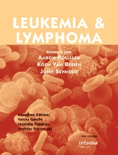
LEUKEMIA & LYMPHOMA
Empowering discoveries in hematology and oncology.LEUKEMIA & LYMPHOMA is a prestigious peer-reviewed journal published by Taylor & Francis Ltd, focusing on vital research in the fields of hematology, oncology, and cancer research. With an ISSN of 1042-8194 and an E-ISSN of 1029-2403, this journal is recognized for its high-quality and impactful contributions to understanding blood cancers, with a notable impact factor reflective of its influence. Since its inception in 1989, LEUKEMIA & LYMPHOMA has continuously provided a platform for researchers and professionals to disseminate their findings, fostering advancements in diagnostic, therapeutic, and clinical strategies related to leukemias and lymphomas. The journal ranks in the Q2 category for both Hematology and Oncology research categories as of 2023, underscoring its commitment to excellence. The journal is based in the United Kingdom and serves a global audience, making it an essential resource for those dedicated to improving outcomes for patients with hematological malignancies.
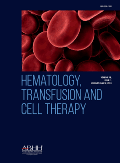
Hematology Transfusion and Cell Therapy
Elevating standards in cell therapy and transfusion science.Hematology Transfusion and Cell Therapy, published by Elsevier, is a leading Open Access journal dedicated to advancing the fields of hematology, immunology, and transfusion medicine. Since its establishment in 2018, this journal has provided a vital platform for sharing innovative research and clinical advancements in the management of blood disorders and cellular therapies. Based in Brazil, it attracts a global audience, facilitating access to high-quality research that influences clinical practice and policy. With a current impact factor that places it in the Q3 category for both hematology and immunology as of 2023, the journal is recognized for its rigorous peer-review process and commitment to disseminating significant findings. By featuring a diverse range of articles, from original research to reviews, Hematology Transfusion and Cell Therapy aims to foster collaboration and knowledge sharing among researchers, professionals, and students alike, empowering them to tackle emerging challenges in their fields.
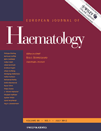
EUROPEAN JOURNAL OF HAEMATOLOGY
Transforming Hematology Through Rigorous ResearchEUROPEAN JOURNAL OF HAEMATOLOGY, published by Wiley, serves as a vital resource for experts in the field of hematology, focusing on the latest advancements in blood disorders and therapies. With an ISSN of 0902-4441 and an E-ISSN of 1600-0609, this esteemed journal has been disseminating knowledge since 1986 and continues to thrive, converging its visionary approach through to 2024. Notably, it holds a distinguished Q2 ranking in Hematology and an impressive Q1 ranking in the broader category of Medicine (miscellaneous) as of 2023, highlighting its significant contribution to the scientific community. With a Scopus rank of #45/137 and a 67th percentile in the field, the journal is recognized for its rigorous peer-reviewed research, making it an indispensable publication for researchers, practitioners, and students aiming to stay at the forefront of hematological studies. Though not an open-access journal, it ensures broad accessibility to critical findings via its subscription model, thus fostering an informed and globally engaged audience.
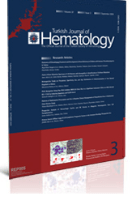
Turkish Journal of Hematology
Pioneering insights into blood disorders and treatments.Turkish Journal of Hematology is an esteemed publication dedicated to advancing the field of hematology, producing influential research since its inception in 1999 under the auspices of GALENOS PUBL HOUSE. With an Open Access model, it facilitates widespread dissemination of knowledge, allowing researchers, clinicians, and students to stay abreast of the latest developments in blood disorders and treatments. With an ISSN of 1300-7777 and an E-ISSN of 1308-5263, the journal holds a commendable position in the academic community, evidenced by its 2023 Q3 ranking within the hematology category and its standing at #80 out of 137 in the Scopus database, placing it in the 41st percentile. Covering a wide scope of topics within hematology, this journal serves as a critical resource for disseminating innovative research and clinical practices pertinent to the ongoing challenges faced in this vital area of medicine. With its continuous publication until 2024, Turkish Journal of Hematology remains a beacon for enhancing the understanding and treatment of hematological conditions within the Turkish and global medical communities.